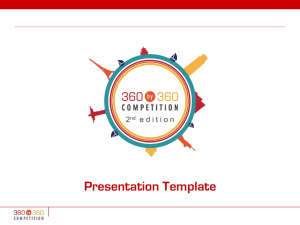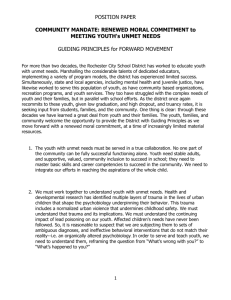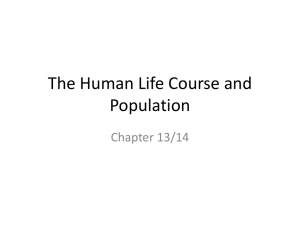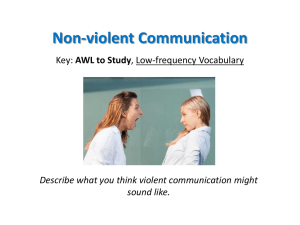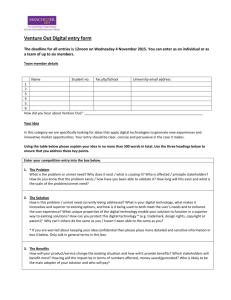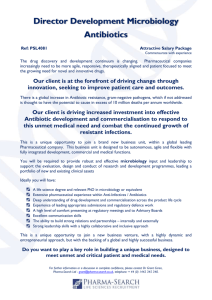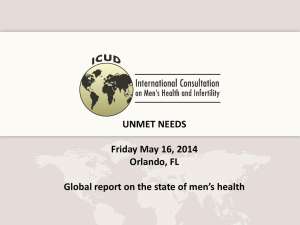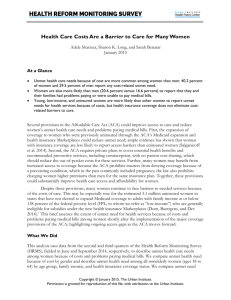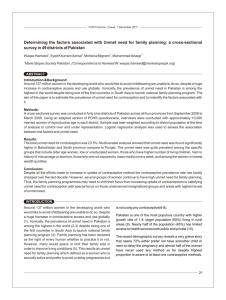Increasing the Work Effort and Performance of the Psychologically
advertisement
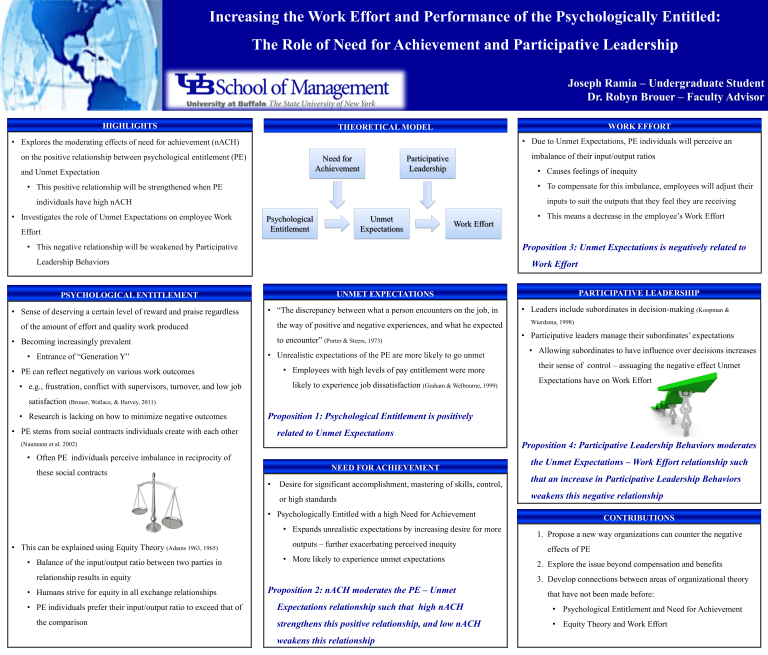
Increasing the Work Effort and Performance of the Psychologically Entitled: The Role of Need for Achievement and Participative Leadership Joseph Ramia – Undergraduate Student Dr. Robyn Brouer – Faculty Advisor HIGHLIGHTS WORK EFFORT THEORETICAL MODEL • Due to Unmet Expectations, PE individuals will perceive an • Explores the moderating effects of need for achievement (nACH) on the positive relationship between psychological entitlement (PE) Need for Achievement and Unmet Expectation imbalance of their input/output ratios Participative Leadership • Causes feelings of inequity • To compensate for this imbalance, employees will adjust their • This positive relationship will be strengthened when PE inputs to suit the outputs that they feel they are receiving individuals have high nACH • Investigates the role of Unmet Expectations on employee Work Effort Psychological Entitlement Unmet Expectations • This means a decrease in the employee’s Work Effort Work Effort • This negative relationship will be weakened by Participative Proposition 3: Unmet Expectations is negatively related to Leadership Behaviors Work Effort • Sense of deserving a certain level of reward and praise regardless • “The discrepancy between what a person encounters on the job, in the way of positive and negative experiences, and what he expected of the amount of effort and quality work produced to encounter” (Porter & Steers, 1973) • Becoming increasingly prevalent • Entrance of “Generation Y” PARTICIPATIVE LEADERSHIP UNMET EXPECTATIONS PSYCHOLOGICAL ENTITLEMENT • Unrealistic expectations of the PE are more likely to go unmet • Employees with high levels of pay entitlement were more • PE can reflect negatively on various work outcomes • e.g., frustration, conflict with supervisors, turnover, and low job likely to experience job dissatisfaction (Graham & Welbourne, 1999) • Leaders include subordinates in decision-making (Koopman & Wierdsma, 1998) • Participative leaders manage their subordinates’ expectations • Allowing subordinates to have influence over decisions increases their sense of control – assuaging the negative effect Unmet Expectations have on Work Effort satisfaction (Brouer, Wallace, & Harvey, 2011) • Research is lacking on how to minimize negative outcomes Proposition 1: Psychological Entitlement is positively • PE stems from social contracts individuals create with each other related to Unmet Expectations Proposition 4: Participative Leadership Behaviors moderates (Naumann et al. 2002) • Often PE individuals perceive imbalance in reciprocity of NEED FOR ACHIEVEMENT these social contracts • Desire for significant accomplishment, mastering of skills, control, or high standards the Unmet Expectations – Work Effort relationship such that an increase in Participative Leadership Behaviors weakens this negative relationship • Psychologically Entitled with a high Need for Achievement • Expands unrealistic expectations by increasing desire for more • This can be explained using Equity Theory (Adams 1963, 1965) • Balance of the input/output ratio between two parties in outputs – further exacerbating perceived inequity • More likely to experience unmet expectations relationship results in equity • Humans strive for equity in all exchange relationships • PE individuals prefer their input/output ratio to exceed that of the comparison CONTRIBUTIONS 1. Propose a new way organizations can counter the negative effects of PE 2. Explore the issue beyond compensation and benefits 3. Develop connections between areas of organizational theory Proposition 2: nACH moderates the PE – Unmet that have not been made before: Expectations relationship such that high nACH • Psychological Entitlement and Need for Achievement strengthens this positive relationship, and low nACH • Equity Theory and Work Effort weakens this relationship
